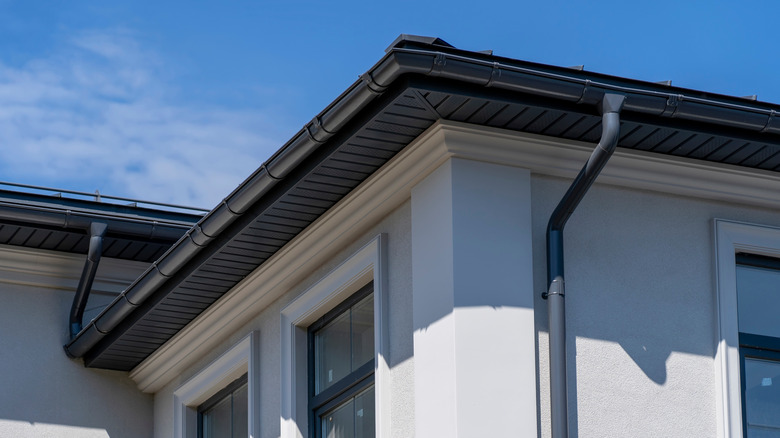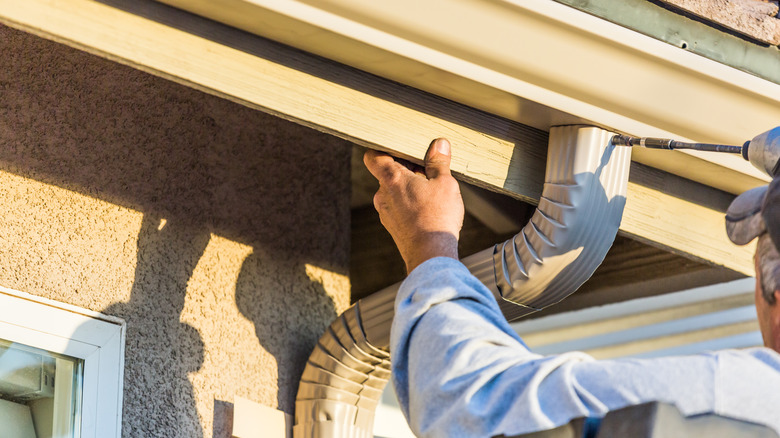Does Your Home Actually Need A Gutter?
Gutters are useful in areas that get significant rainfall because they control the flow of water from the roof and divert it away from your home's foundation, according to Sunvek. Without gutters, rainwater can accumulate around the base of a house, which can cause foundation damage or basement leaks over time. If you live in a dry climate, your considerations for installing — or not installing — gutters may be different.
People have known about the benefits of guttering systems as early as 3,000 B.C., states Barry Best Seamless Gutters. Although the earliest gutters were made from clay, steel became the material of choice in the early 1900s. Today, the vast majority of gutters produced and installed on homes are made of aluminum. This material resists rust and is lightweight but strong, making it easy to set up while standing up to the elements. When properly maintained, you can expect gutters to last around 20 years.
When do you need a gutter?
If you are trying to decide if you should invest in these ducts on your house, there are a few signs to look for that indicate that your lack of a guttering system is actually causing damage to your home. First, Mr. Handyman suggests inspecting your siding. If you see signs of rot or mold, moisture from rain is likely coming in contact with the side of your house. This means the roof overhang is not wide enough to keep water off your siding.
By installing gutters, rainwater rolling down your roof will be diverted to the downspout and away from your siding. As the saying goes, "an ounce of protection is worth a pound of cure," investing in gutters can save you from paying for new siding on your house — and you would still need to install a guttering system to prevent the same damage from happening again.
After a heavy rain, you might notice a straight line in your landscaping mulch or soil where the rain has pounded the ground so hard that it leaves a dip. This kind of water runoff makes it difficult to have plants in your landscape because of the damage it causes. Installing gutters resolves this problem.
What homes do not need gutters?
There are some situations where there is little to no benefit from investing in gutters. For example, you do not need a guttering system if your home is in a region with minimal rain or snowfall. Since you do not have to worry about moisture damage to your foundation or the side of your house, there's no need to install gutters to divert the small amount of rain you get in an arid environment, according to Roofscour.
Other conditions can also save you the cost of installing gutters. For instance, if your home was built at the top of a hill where the ground slopes away, the runoff will naturally be diverted down the hill rather than settling around your foundation. This is particularly true if you have a long roof overhang around the perimeter of your home, in which case you also would not have to worry about moisture causing mildew or other problems with your siding. If your house has a flat roof rather than gutters, the most common practice is to add a rain diverter to prevent leaks.


